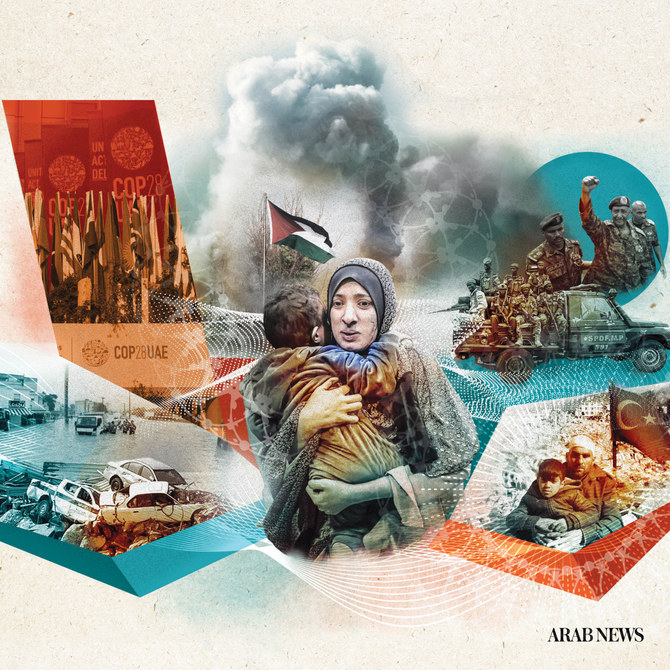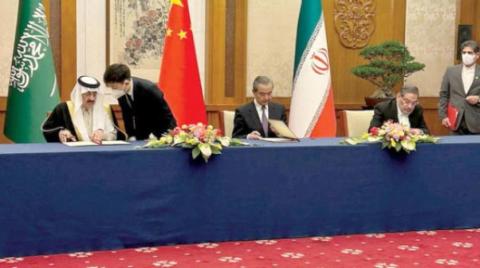
The Peace of Westphalia brought reconciliation, order and peace to central Europe — “such a feat is worth emulating,” the authors conclude
BEIRUT: “Towards A Westphalia for the Middle East” by Patrick Milton, Michael Axworthy and Brendan Simms provides the framework for a solution to years of conflict and unrest in the Middle East. This refreshing discussion is based on the Peace of Westphalia, the treaty that put an end to the Thirty Years War in Europe in 1648.
Ralf Beste and Maike Thier mention in the preface that German diplomats’ interest in this treaty did not originate at home, but in the Middle East. Former German Foreign Minister Frank-Walter Steinmeier, who is now the country’s president, participated in a symposium with Arab intellectuals during a trip to Jeddah some years ago, during which a young man exclaimed that the Middle East needed its own Peace of Westphalia.
The remark was impactful and eventually the Korber Foundation, in cooperation with Germany’s Policy Planning Unit of the Federal Foreign Office and the University of Cambridge, initiated a project, “A Westphalia for the Middle East,” to search for constructive approaches and creative ideas in the search for peace.
The authors argue that both the Thirty Years War in Europe and the conflict in the Middle East consist of a series of separate but interconnected struggles and detail their belief that the 17th century treaty’s success was due to its peacemaking techniques and diplomatic lessons — to include bigger powers, to be innovative, creative, willing to compromise and, finally, to negotiate for as long as it takes until a peace deal is signed.
David Petraeus, the former director of the US Central Intelligence Agency, Ahmed Aboul Gheit, secretary-general of the Arab League, and German leader Angela Merkel, to name but a few, have endorsed the Westphalia project.
The book itself has gained recognition from international scholars, with Peter Wilson, professor of History at Oxford University, calling it a “lucid, critical discussion of how the historical example of the Peace of Westphalia might encourage more constructive solutions to current conflicts in the Middle East.”
The Peace of Westphalia brought reconciliation, order and peace to central Europe — “such a feat is worth emulating,” the authors conclude.












